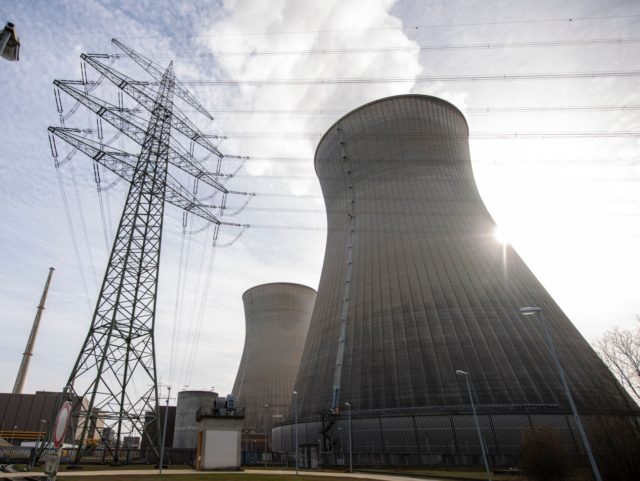Germany will close all of its nuclear power plants by the end of this year, despite the nation’s already-crippling addiction to Russian natural gas.
While there had been claims Germany would ‘u-turn’ on its hardline anti-nuclear policy in light of the intensification of the Ukraine conflict, officials have now confirmed on Tuesday that it will keep to schedule and shutter all remaining atom-splitting power plants by the end of this year.
This decision comes despite the country wrestling with its crippling addiction to Russian gas, a habit that both Germany and the broader European Union reportedly aim to kick.
However, according to a Reuters report, politicians in the central-European country do not think it is worth keeping its nuclear plants open in the face of an impending energy crunch, and intend to rely on other forms of energy generation being able to wean the country off of Russian supply.
“As a result of weighing up the benefits and risks, an extension of the operating lives of the three remaining nuclear power plants is not recommended, also in view of the current gas crisis,” said the two of Germany’s ministries responsible for examining the situation — both of which are headed up by the traditionally anti-nuclear green party.
Instead, Germany’s green party Economy Minister, Robert Habeck, has backed the use of renewable sources, as well as Liquified Natural Gas (LNG), as the best way for Germany to ease its reliance on hydrocarbons bought from Moscow.
“We totally agree that the construction of electricity networks, LNG terminals and renewable energy must be done at ‘Tesla speed’,” Habeck said, referencing the quick construction of Elon Musk’s car factory in the country.
Europe’s Russian Gas Addiction Under Pressure as Kremlin Threatens to Cut Supply https://t.co/wD1qX6SorI
— Breitbart London (@BreitbartLondon) March 8, 2022
While German officials seem confident that the use of LNG, bolstered by other power sources, will be able to solve Germany’s energy dependence on Russia, there remain reasons to be sceptical.
First, Germany has exactly zero terminals capable of accepting LNG — which requires significant processing both before and after shipment before it can be used as fuel — the country having only just signed the contract for the construction of its first facility.
Meanwhile, other facilities in Europe — such as Poland’s terminal on the German border and the Dutch facility in Rotterdam — are already operating near capacity according to a recent report by Reuters, so will not likely be able to be of significant benefit to Germany.
Even if landing a supply of LNG in the country wasn’t an issue, however, actually obtaining the liquified gas may yet prove to be quite difficult, if not extremely costly.
According to a report by Azernews published before the conflict in Ukraine escalated, Asia was expected to put significant pressure on LNG supplies, with demand for the fuel expected at that time to rise by 90 per cent by 2040.
With the sudden spike in demand in Europe however, the price of the commodity is expected to spike even further, with no sign of the cost coming down in the short term.
Despite all of these dangers, the Germans seem confident that LNG is the way to go, saying that they aim to have their first LNG terminal open in 2024.
In the meantime, however, authorities may be relying on the German population abiding by a request from European Commission President Ursula von der Leyen, who asked Europeans to try and save energy as the bloc makes the transition away from Russian fuels.
“We can all help to become more independent from Russian gas, from fossil fuels in general, by saving energy,” von der Leyen told a German television programme, saying that such a move would be allow Europe “become [energy] independent much more quickly”.
“Everyone in their place can do that,” she also said.
Turn Down Thermostats to Fight the Ruskies, Europeans Toldhttps://t.co/pWAJgoYqqC
— Breitbart London (@BreitbartLondon) March 4, 2022

COMMENTS
Please let us know if you're having issues with commenting.